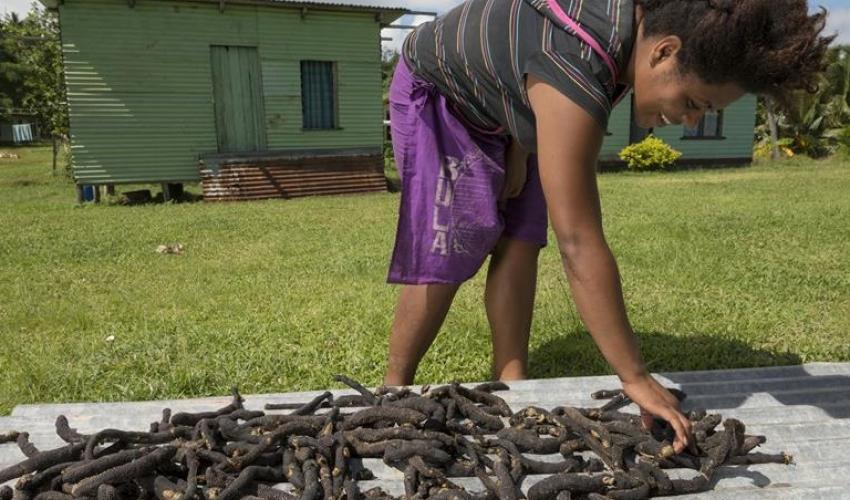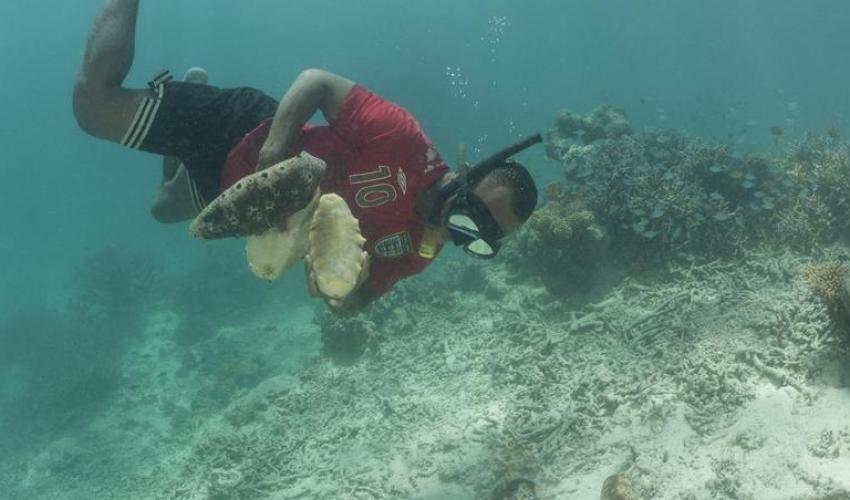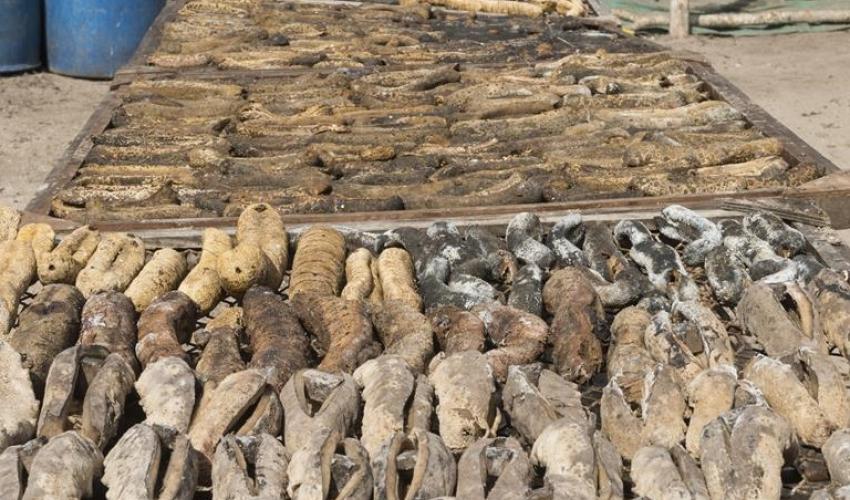Challenges facing management of coastal fisheries and bêche-de-mer in the Pacific
The Pacific Islands region is reaching a critical point in the management of its coastal fisheries (including bêche-de-mer), as unsustainable fishing practices risk the region’s future sustenance, livelihoods and safety. Fisheries ministers from across the Pacific Islands region will discuss how to address these challenges at a three-day meeting this week in Nadi, Fiji.
Discussion on fisheries management in the Pacific Islands region tends to focus solely on oceanic tuna fisheries. For example, at the 45th Pacific Islands Forum meeting held in late-July, the region’s political leaders noted with concern the rapid decline in tuna stocks, and called for action to strengthen sustainable fisheries conservation to constrain and reduce tuna catches. While this is undoubtedly a critical issue, the management of coastal fisheries is often overlooked – but is equally in need of improved management.
Coastal fisheries are the lifeblood of coastal communities, underpinning subsistence and livelihoods across the region. Coastal fisheries provide an average of 50% of the protein needs of Pacific Island communities. Economically, the bêche-de-mer fishery is the second-largest in the region, second only to the tuna fishery, and provides up to USD 50 million per year to coastal communities by supplying the increasing demand for the product from Asian markets. Commercial fishing along the coast is also economically important, contributing approximately USD 165.7 million to communities each year.
But the flip-side of this income generation is exploitation and depletion of the natural resources, which compromises the region’s future food security and prosperity. Overfishing is depleting the abundance and availability of fish species. Harvesting of bêche-de-mer is often unregulated and unsafe, with people diving at depth without the appropriate diving equipment. This jeopardises the health of individuals – in extreme cases causing death.
Shifting to sustainable management of these resources will be the main topic of discussion at the Pacific Bêche-de-mer and the Future of Coastal Fisheries Meeting in Nadi, Fiji, from 6 to 8 August 2014. The meeting of fisheries ministers is being co-hosted by the Governments of Fiji, Tonga and the Republic of the Marshall Islands. It aims to build collective will in the region to start managing these resources appropriately, so that they remain available for future generations.
“Our regional fisheries meetings have a Tuna focus – but our coastal communities depend on the inshore fishery which is under threat. Bêche-de-mer over-harvesting has resulted in moratoriums in several Pacific countries, but it highlights the need for effective management of domestic and coastal fisheries. This summit is about taking actions and bringing high-level political consensus on coastal fisheries management” says Taholo Kami, IUCN Regional Director for Oceania.
This meeting comes at an opportune time, as it builds on momentum created by the recent announcement of funding for Pacific coastal fisheries. At the 45th Pacific Islands Forum meeting, the Australian Government announced it was providing AUD 9.6 million to the Secretariat of the Pacific Community (SPC) to provide science-based technical support and information to Pacific Island countries for the sustainable management and conservation of their coastal fisheries.
Coastal fishery and bêche-de-mer resources need to be managed for the long-term benefit of Pacific Island communities, not just to meet short-term external demand. Action is required to balance the income generation from these resources in the present with the need to ensure these resources are available for future generations.
The Pacific Bêche-de-mer and the Future of Coastal Fisheries Meeting is facilitated by a partnership between the Government of New Zealand, SPC, University of the South Pacific (USP), World Wildlife Fund (WWF), Wildlife Conservation Society (WCS), IUCN Oceania, and the Marine and Coastal Biodiversity Management in Pacific Island Countries (MACBIO) project (funded by the German Federal Ministry for the Environment, Nature Conservation, Building and Nuclear Safety (BMUB) under its International Climate Initiative).



